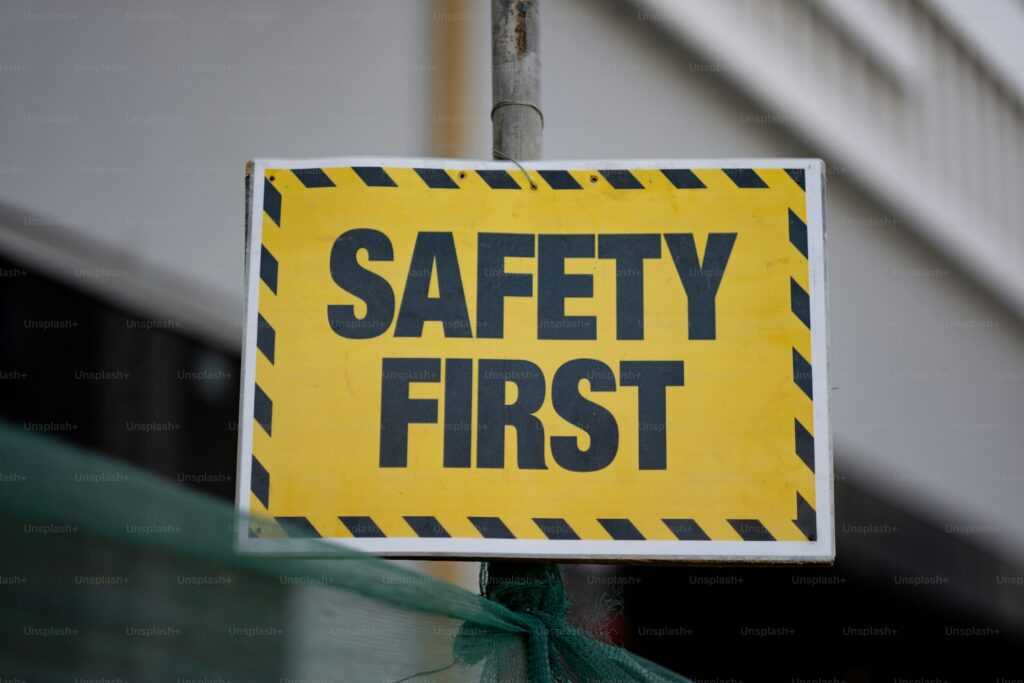Health and safety at the workplace is an issue that has often been underappreciated in Nigeria, despite the grave consequences that poor safety standards can have on employees. Workplace fatalities and injuries are a serious problem, many of which go unreported due to insufficient record-keeping and inadequate enforcement of safety regulations. It is the duty of employers to not only provide a safe working environment but to ensure that employees are properly trained and equipped to carry out their tasks without the risk of injury or fatality.
Every worker deserves to go to work in good health and return home to their families at the end of the day without the fear of accidents that could leave them disabled for life. Sadly, many Nigerian workers face workplace hazards that could be avoided if the necessary precautions were taken. Whether due to insufficient enforcement of existing laws or lack of attention to safety, the impact on employees and businesses alike is undeniable. This article explores the current state of occupational health and safety in Nigeria, the steps that should be taken to ensure a safer working environment, and the consequences of neglecting this vital aspect of the workforce.
The Importance of Health and Safety in the Workplace
The workplace should be a place where employees are protected, supported, and allowed to perform their duties without unnecessary risks. Health and safety policies in the workplace are not only about preventing physical injuries but also about safeguarding the mental and social well-being of workers. In many sectors in Nigeria, workers face a wide range of hazards, from exposure to harmful chemicals and unsafe machinery to long working hours and high stress.
Employers must ensure that their workers are provided with a safe and healthy environment in which they can work productively and return home healthy every day.
Occupational health and safety (OHS) cover a broad range of areas, including the prevention of work-related injuries, illnesses, and accidents, as well as the overall welfare of employees. This includes ensuring that workers are not exposed to mental stress, physical hazards, or environmental factors that could impact their health.
There are both physical and psychological aspects of health and safety that employers need to address. For example, long working hours, unreasonable workload, and workplace bullying can have a detrimental effect on an employee’s mental health.
The physical environment also plays a critical role in ensuring safety. Employers must maintain safe plants, equipment, and machinery that do not pose risks to their workers. Regular safety checks, maintenance, and training on the proper handling of equipment are essential steps in creating a secure environment.
Legal Frameworks and Regulations in Nigeria
The Nigerian government recognizes the importance of occupational health and safety and has established a regulatory framework to address these issues. The government’s commitment to workplace safety is evident in its ratification of the International Labour Organization’s (ILO) Convention No. 155 on Occupational Safety, Health, and Working Environment in 1994. This convention emphasizes that the protection of workers’ health and safety is essential for achieving social justice and sustainable economic growth.
In addition, Article 17.3(c) of the 1999 Nigerian Constitution (as amended) specifically mandates the government to ensure the health, safety, and welfare of employees. Furthermore, the National Industrial Court of Nigeria Act and the Occupational Safety and Health (OSH) Policy are part of the laws that guide the country’s approach to worker safety.
However, despite these laws and regulations, enforcement remains weak, and many businesses fail to comply with safety standards. The lack of effective implementation of these laws and regulations has led to a rise in workplace fatalities and injuries, some of which go unreported due to fear of reprisal or lack of proper documentation.
The Role of Employers in Ensuring Health and Safety
Employers play a critical role in the protection of their workers. It is their responsibility to create and maintain a safe working environment by providing proper training, safety equipment, and regular assessments of workplace hazards. Employers must also take proactive steps to eliminate or minimize risks to health and safety in the workplace.
Some of the key ways in which employers can contribute to health and safety include.
• Providing Adequate Training: One of the most important responsibilities of employers is to provide ongoing health and safety training for employees. Workers should be equipped with the knowledge and skills necessary to perform their jobs safely. This includes understanding how to handle equipment properly, use personal protective equipment (PPE), and respond appropriately in emergency situations.
• Conducting Risk Assessments: Risk assessments are a critical part of maintaining a safe work environment. Employers must regularly assess potential hazards and implement corrective measures to eliminate or reduce those risks. Risk assessments should cover physical hazards such as machinery, electrical systems, and chemicals, as well as ergonomic risks, manual handling tasks, and psychosocial factors such as workplace stress and harassment.
• Ensuring Proper Use of Personal Protective Equipment (PPE): PPE is essential in many workplaces, particularly in industries such as construction, manufacturing, and healthcare. Employers must provide the necessary PPE, ensure workers know how to use it correctly, and establish procedures for its proper maintenance and disposal.
• Promoting Mental Health and Well-Being: Mental health is often overlooked in discussions about workplace safety, but it is equally important. Employers must recognize the signs of stress, anxiety, and depression in workers and offer support through counseling, stress management programs, and reasonable work schedules.
• Establishing Clear Reporting Systems: Employees must have a clear and accessible system for reporting health and safety concerns, whether related to equipment, hazardous conditions, or unsafe working practices. Employers should create a culture where workers feel comfortable reporting risks without fear of retaliation.
Consequences of Poor Health and Safety Practices
Neglecting health and safety can have serious consequences, not only for the employees but also for the employers and businesses. The most obvious consequences are the human toll—injuries and fatalities, which often lead to workers suffering long-term disabilities or even death. Between 2009 and 2010, Nigeria recorded at least 100 occupational fatalities, and in the power sector, over 400 workers died between 2010 and 2012 while performing their duties.
These numbers are alarming and highlight the urgency of addressing workplace safety. For employers, failing to ensure a safe working environment can have significant financial repercussions. They may face compensation claims, medical expenses, and the cost of replacing injured workers or damaged equipment. In some cases, employers could be prosecuted for negligence, which can result in heavy fines or even imprisonment.
The reputational damage to businesses is another critical consequence of poor health and safety practices. Accidents and fatalities in the workplace can tarnish a company’s image, affecting its ability to attract customers, investors, and skilled employees. A business known for neglecting worker safety is likely to suffer long-term damage to its brand and public perception.
Furthermore, when employees are injured or killed, businesses lose valuable manpower, which leads to reduced productivity and increased absenteeism. In many cases, the emotional toll on coworkers can also affect morale, leading to a less productive and engaged workforce.
The Way Forward: Strengthening Health and Safety in Nigeria
To improve workplace health and safety in Nigeria, both employers and the government must take proactive measures. The government needs to strengthen the enforcement of existing laws and regulations, while employers must take responsibility for creating safer working environments.
The following steps can help improve workplace safety:
• Better Enforcement of Laws: The government must ensure that the laws and regulations governing workplace health and safety are strictly enforced. This includes carrying out regular inspections of workplaces and imposing penalties for non-compliance.
• Increasing Awareness: Employers must educate their workers about the importance of health and safety and ensure they understand their rights and responsibilities. Public awareness campaigns can also help raise awareness of workers’ rights and encourage them to report unsafe conditions.
• Encouraging Corporate Social Responsibility (CSR): Companies should integrate healt and safety practices into their CSR initiatives. By doing so, businesses can demonstrate their commitment to protecting their workers and promoting safe working conditions.
• Collaboration with International Organizations: Nigeria can benefit from collaborating with international organizations like the ILO to improve its occupational health and safety standards. These partnerships can provide access to best practices, technical expertise, and financial support for improving workplace conditions.
Health and safety in the workplace are not optional
They are essential for the well-being of workers and the success of businesses. It is the responsibility of both employers and the government to ensure that adequate measures are in place to protect workers from harm. By implementing robust health and safety policies, conducting regular risk assessments, and creating a culture of safety, Nigeria can significantly reduce workplace injuries and fatalities. Employers must recognize that investing in the safety and well-being of their workers is not only a moral obligation but also a business imperative that can improve productivity, reputation, and long-term success.
Ultimately, a safer workplace is a more productive and prosperous one for all involved. It is time for all stakeholders—employers, employees, and government agencies—to work together to make Nigerian workplaces safer and healthier for everyone.
By Sam Oji jr.






